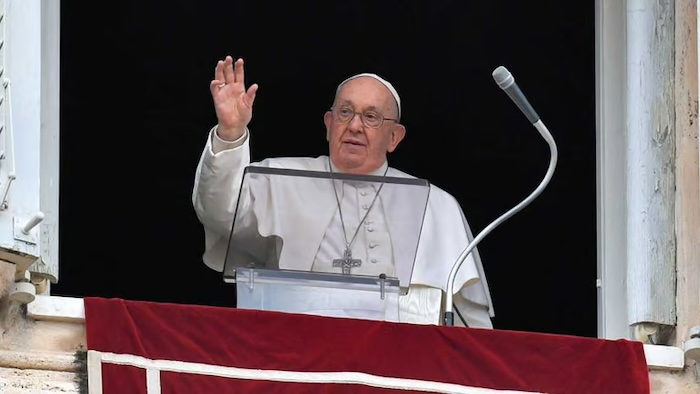
By Mary Pezzulo
They’ve been talking about married priests on X/Twitter lately.
A Vatican official brought up ending the usual requirement for priestly celibacy in the Roman Catholic Church as a possible way to help priests not feel the need to live “double live.” He didn’t draw any links between celibacy and sexual abuse, but since he also investigates clerical abuse he mentioned how it’s changed his point of view. And people got to talking. The question was asked, as I’ve often heard it asked: could letting priests have a wife help prevent the horrific sexual abuse scandals that just seem to keep happening? And as I always do when it’s asked, I cringed.
I am all in favor of examining the expectation that priests should be celibate. There are many reasons it might be good to have a married priesthood more like they do in the Eastern tradition. But it’s very dangerous to claim that giving priests wives will stop them from abusing. I don’t think there’s any evidence that not being allowed to have sex makes people abusive, and I think it’s dangerous to claim that it does.
If a vow of celibacy was really the cause of sexual abuse, we wouldn’t be having a depressingly familiar crisis in Evangelical Protestant churches right now, but we certainly are. Baptist pastors are men who can marry; in fact, a married pastor is not merely permitted but presumed to be the norm. They’re supposed to have a helpmate and children. It hasn’t stopped them from acting eerily like Catholic priests have been caught acting time and again. Anybody, from any walk of life, can abuse, but what is it about those religious traditions that makes sexual abuse by clergy so endemic there? What do they have in common? It’s not clerical celibacy.
And in any case, if you say that being married will keep a man from abusing, you’re putting the responsibility to stop him onto his wife.
You’re suggesting either that the wife will hold him accountable and protect any potential victims, or that she’s supposed to sexually gratify him so he doesn’t seek victims in the first place.
If you believe that married priests would end the abuse crisis because women would hold their husbands accountable: I don’t know how to begin to explain how crass it is to instrumentalize Catholic women and the sacrament of Holy Matrimony by using it as a pair of handcuffs for an abusive man. But most of the people who support giving priests wives to end sexual abuse seem to be claiming the latter. They seem to think that sexual abuse happens because priests are celibate, so having an outlet in the form of a wife will satisfy them so they don’t find a victim to force themselves onto.
This is also a disgusting instrumentalization of women, and of sex, which is supposed to be a free gift of love from one spouse to another. And it assumes that abusers abuse because they’re craving sex, which isn’t the case– most abusive people abuse because they get off on dominating others and making them suffer, not because they’re desperate to have sex. Sex and sexual abuse are fundamentally different things. But in addition, this idea betrays an extremely disturbing notion about how sexual urges and self control are supposed to work.
You don’t have to accept the Church’s teaching on sexuality to see the problem.
Any kind of healthy or ethical relationship with sex begins with the understanding that people don’t have to act on their urges. Sex, or at least sex with another person, is one of those things you can’t have merely because you think you’d like it; it always involves another person’s consent, and even if the other person is willing you can’t just have it wherever and whenever you think might be fun. No one can constantly be sexually gratified exactly as they’d like. Everybody is, in practice, celibate most of the time. You have to have self-control to exist among other people.
Being a functioning human involves being able to say “no” when your urges say “yes–” whether your urge is to shoplift Nutella and eat the whole jar in the supermarket, or to drive your car at 120 miles per hour in the middle of the city, or to have sex. If you can’t handle that, you shouldn’t be a priest; you shouldn’t even be allowed around other people. You should be locked up.
I am deeply disturbed that a sizable number of people don’t seem to understand that having an outlet for his sexual urges isn’t going to fix a man who can’t control himself– even if that were fair to his wife.
If you want to say that expecting a man to be celibate for his entire life is bad for his mental health, we can have that argument. If you want to say that a vow of celibacy, combined with the Church’s stance on sexual issues, is only going to be attractive to a man who’s prone to abuse, we can argue about that too. We can sure talk about ordaining married men for other reasons. But if you think that sexual abuse is something that happens because a man needs an outlet one way or another so we’d better give him a wife, that’s not a position that can be defended. Because women are people, and because that’s not how sexuality works.
Complete Article ↪HERE↩!

